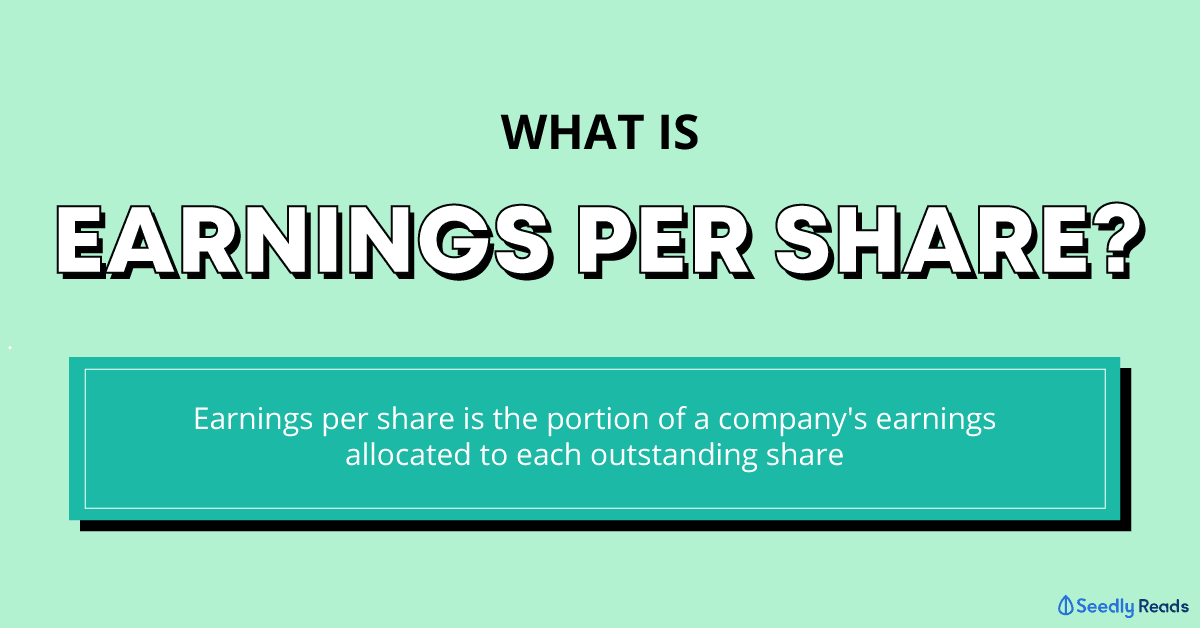In this “What Is…?” series, we demystify investing terms for people who are just learning about the stock market.
Here, let’s examine more about the term “earnings per share”.
So, What Is Earnings Per Share (EPS)?
EPS is the portion of a company’s earnings (also known as net profit) allocated to each outstanding share.
It is an indicator of a company’s profitability as well.
Tracking a company’s EPS over time shows how much the business has grown (or declined).
Earnings Per Share Formula
EPS is calculated by taking the net profit divided by the outstanding shares in the stock market.
EPS = Earnings / Outstanding Shares
This can be considered the basic EPS.
There is also the diluted EPS, which is an expansion of basic EPS.
Diluted EPS factors in the dilutive effects of convertible securities like stock options or warrants on the outstanding shares.
With a larger denominator, diluted EPS will be lower or similar to the basic EPS.
Diluted EPS is a conservative metric as it indicates a “worst-case scenario” where all the convertible securities are converted to shares.
Calculating Earnings Per Share of a Listed Company
Let’s use Singapore Exchange Limited (SGX: S68) as an example to learn how to calculate EPS.
The easiest method to find out Singapore Exchange’s EPS is to just zoom into it in its financial report.
The stock market operator reported a basic and diluted EPS of 12.8 Singapore cents for its third quarter of FY2020.
Both basic and diluted EPS are the same in this case, as there was minimal difference in outstanding shares for the quarter.

The EPS figure can also be calculated manually by using the formula shown earlier.
We can take Singapore Exchange’s third-quarter net profit of S$137.47 million (shown below) and divide it by the number of outstanding shares of 1.07 billion (screenshot just above). Doing so will give us the same EPS figure of 12.8 Singapore cents.

Have Burning Questions Surrounding The Stock Market?
Why not check out the Seedly Community and participate in the lively discussion regarding stocks!
Disclaimer: The information provided by Seedly serves as an educational piece and is not intended to be personalised investment advice. Readers should always do their own due diligence and consider their financial goals before investing in any stock.
Advertisement

